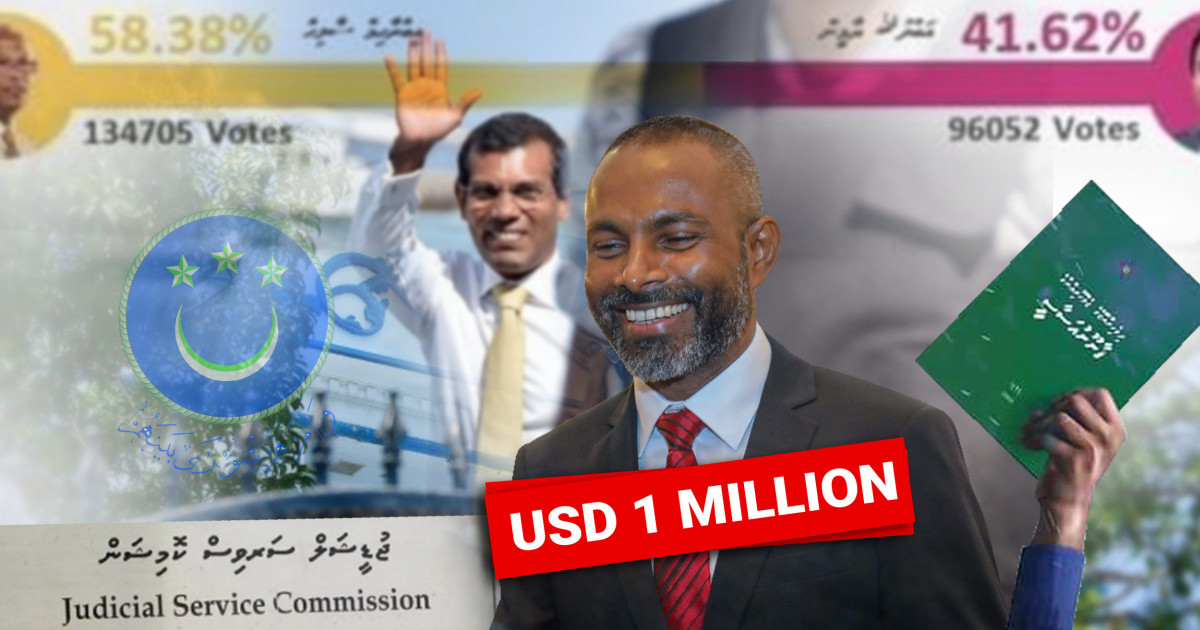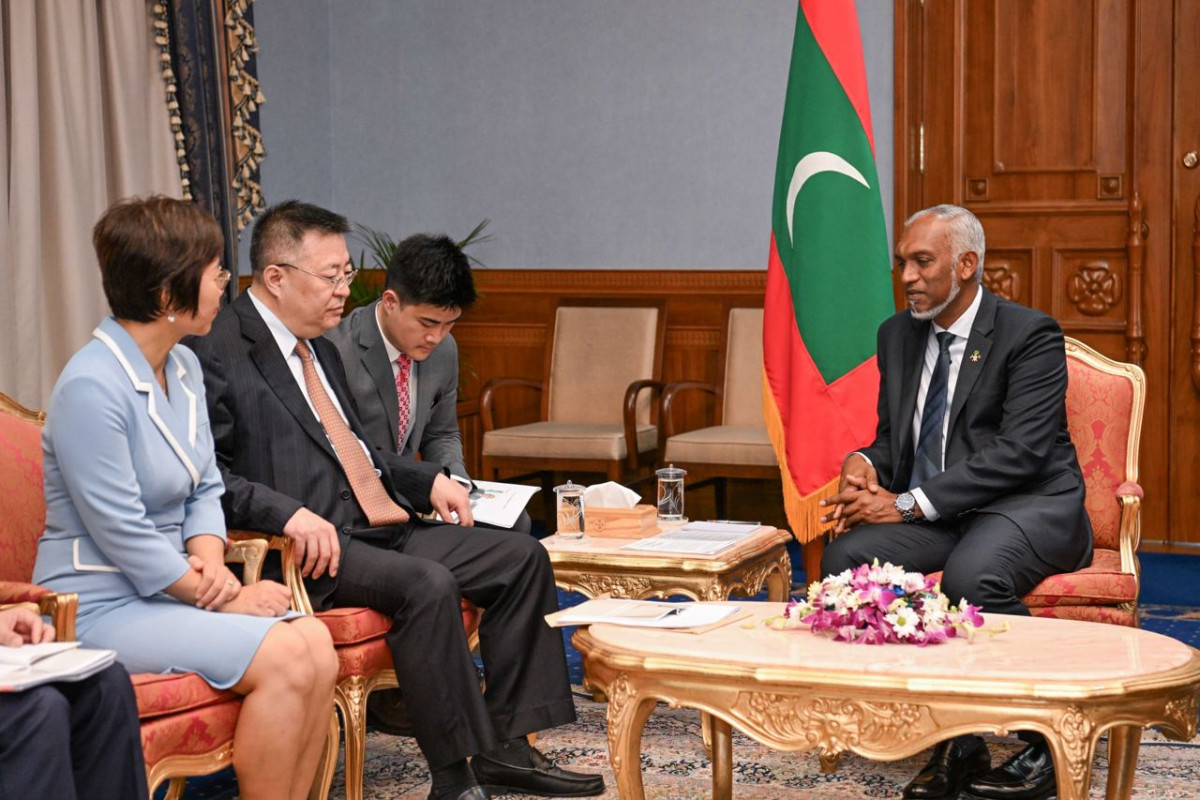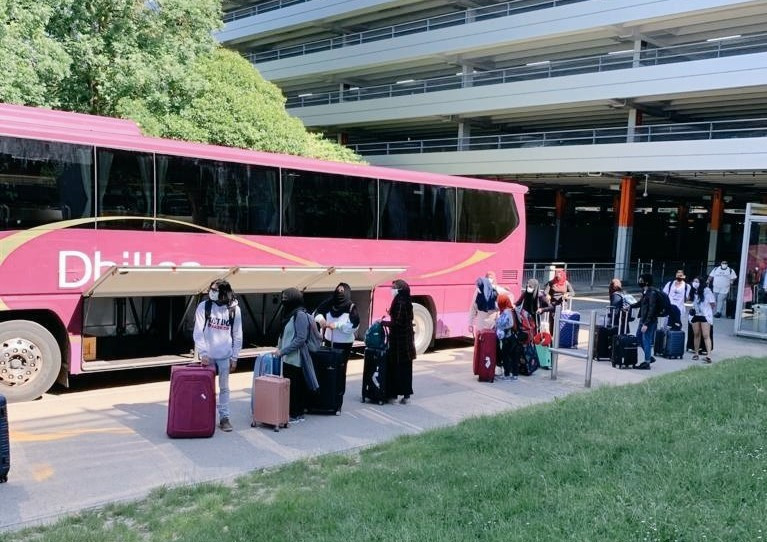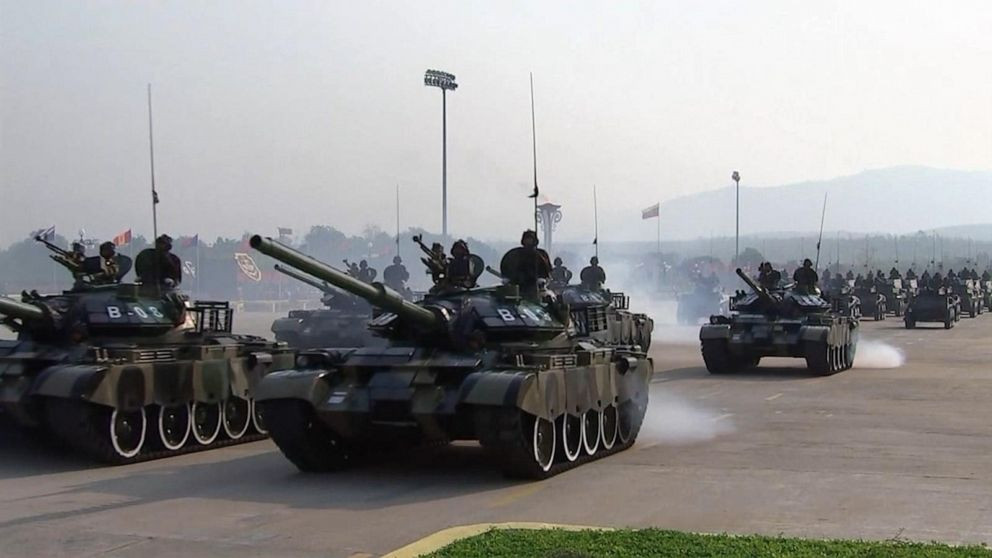Why doesn't the Supreme Court just declare a president at this rate?
Judicial Service Commission and the Supreme Court are in a "power" fight


COVER PHOTO
Last week, the Judicial Service Commission suspended a Supreme Court justice after being informed that he was being investigated by the police.
It is true that the individual that filed a complaint against the said justice, currently sits on the Commission; current parliament speaker and former president, Mohamed Nasheed.
Nasheed was sentenced to 13 years after a 19-day trial widely deemed as unfair, both by local and international organizations. In fact, it was the Supreme Court that ultimately declared that he was wrongfully charged and that lower court “should not” have proceeded with the trial, last November.
According to Nasheed, Supreme Court Justice Abdulla Didi was bribed with USD one million, to convict him. The former president filed a case against the 47-year-old, at both the JSC and police service.
The day after his suspension, Didi filed a case at the Supreme Court, which in turn issued a stay order directed at all relevant institutions; hence the case cannot be further investigated until the court makes a decision.
This has led to a power fight between them, and a motion was proposed to parliament seeking to nullify the court's orders in the matter.
The parliament's judiciary committee passed to support JSC’s decision to suspend Didi, at a meeting held late Saturday night.
However, even before its report was submitted to the parliament floor, Supreme Court issued another order saying that any decision against its initial order "is invalid."
This led to a statement from the president, emphasizing that "the powers and institutions established by the constitution have been structured in such a way as to prevent the dominance of one over the other."
There has been a dispute regarding who holds the highest authority when it comes to cases related to the judiciary, including among legal experts.
Article 157 (b) of the Maldives Constitution states that “the jurisdiction of the Judicial Service Commission shall extend to ALL MEMBERS of the Judiciary and such other persons as designated by the People’s Majlis.”
According to Article 159, the JSC is entrusted with the responsibility and power to;
But, Article 113 states that “the Supreme Court shall be the highest authority for the administration of justice in the Maldives.”
The Constitution also notes that the Supreme Court “shall be the final authority on the interpretation of the Constitution, the law, or any other matter DEALT WITH BY A COURT OF LAW.”
Reforming the judiciary is one of the main ruling Maldivian Democratic Party (MDP)’s pledges, in both the presidential and parliamentary elections.
In both these elections, that people made sure their voices were heard by giving MDP an overwhelming victory; incumbent President Ibrahim Mohamed Solih beat Yameen with 58% of the votes while the ruling party won 65 seats- out of 87- in the parliamentary election.
This shows that the Maldivian people craved justice, a lot more than the modern development Yameen had promised with tall buildings and bridges.
MDP’s leader, speaker Nasheed said that judicial reform will be “one of the most important work carried out under MDP’s parliamentary policy.”
As such, their work began with the Judicial Service Commission, which has been silent for about five year.
While the members were summoned to a parliament committee last week, member Judge Easa Fulhu that the Commission has not been able to work independently and blamed the Supreme Court for this.
It was always clear that the Supreme Court will obstruct any reform efforts.
Which is why it was important to start with the top court, who as predicted is attempting to block the work.
Now their stance is that the JSC nor the parliament has no jurisdiction to overrule their order.
Does that mean that Solih should go as low as his predecessor, and declare a state of emergency so as to curtail Supreme Court’s authority? Or as Feydhoo constituency MP Mohamed Nihad said in parliament today, it is time to reform the judiciary through whatever means including "abolishing the Constitution.”
Otherwise, at this rate, the Supreme Court might just end up declaring a president…because there is nothing that can be done, unless an amendment is brought to the Constitution; which is something the main ruling party CAN do with a super-majority in parliament.






